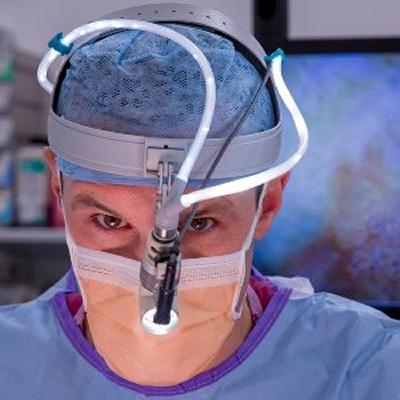University of Southampton clinician scientist uses 'stomach pacemaker' to halt heartburn

A surgeon in Southampton is using a tiny pacemaker-like stomach implant to help people suffering from persistent heartburn. The novel device, known as EndoStim, sends mild electronic pulses to control a muscle valve and prevent acid from the stomach leaking into the oesophagus, or gullet.
Patients with regular heartburn may have gastro-oesophageal reflux disease (GORD), a condition which may also cause a bad taste in the mouth due to acid reflux and discomfort when swallowing.
GORD occurs when a ring of muscle called the lower oesophageal sphincter (LOS) becomes weak and allows acid from the stomach to flow into the gullet.
If left untreated, it can lead to ulceration and scarring of the oesophagus or develop into a pre-cancerous disease known as Barrett’s oesophagus. In some rare cases it can progress into oesophageal cancer.
While many patients’ symptoms improve with medications to reduce the amount of acid produced in the stomach, they cannot cure the condition and, currently, the only alternative is surgery to constrict the lower oesophagus in a procedure known as a Nissen fundoplication.
EndoStim is fitted via keyhole surgery during a 40-minute procedure in which surgeons attach two wires to the stomach muscle and link them with the device, which sits under skin of the abdomen.
It is then programmed from outside of the body to deliver small electrical currents which enable the valve to open as food arrives, then tighten to prevent acid escaping.
Tim Underwood, a consultant oesophageal surgeon at Southampton General Hospital and MRC clinician scientist, is the only clinician in the south of England performing the procedure.
“Currently, the most common approach to treating GORD is medication therapy, but medications do not treat the root cause of the problem and only temporarily relieve the symptoms of discomfort,” he explained.
“The traditional surgical option of Nissen fundoplication permanently alters a patient’s anatomy, occasionally causing significant side effects – but EndoStim provides patients with a long-term solution that has a low risk of adverse side effects.”
In a study of 25 patients published in the journal Surgery earlier this year, researchers found that 90% of patients with EndoStim were able to eliminate their dependence on daily medications with no reported side effects.
The procedure, which is not currently available on the NHS, is available to self-funding patients at Southampton General Hospital at a cost of £14,000, with income returned directly to hospital funds to support the NHS.
Patients who are selected for EndoStim therapy will be entered onto a research and development registry to enable clinicians to monitor long-term clinical outcomes for patients undergoing the treatment worldwide.
Anyone interested in finding out more about the procedure can call 023 8120 8697 or email endostim@uhs.nhs.uk.